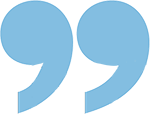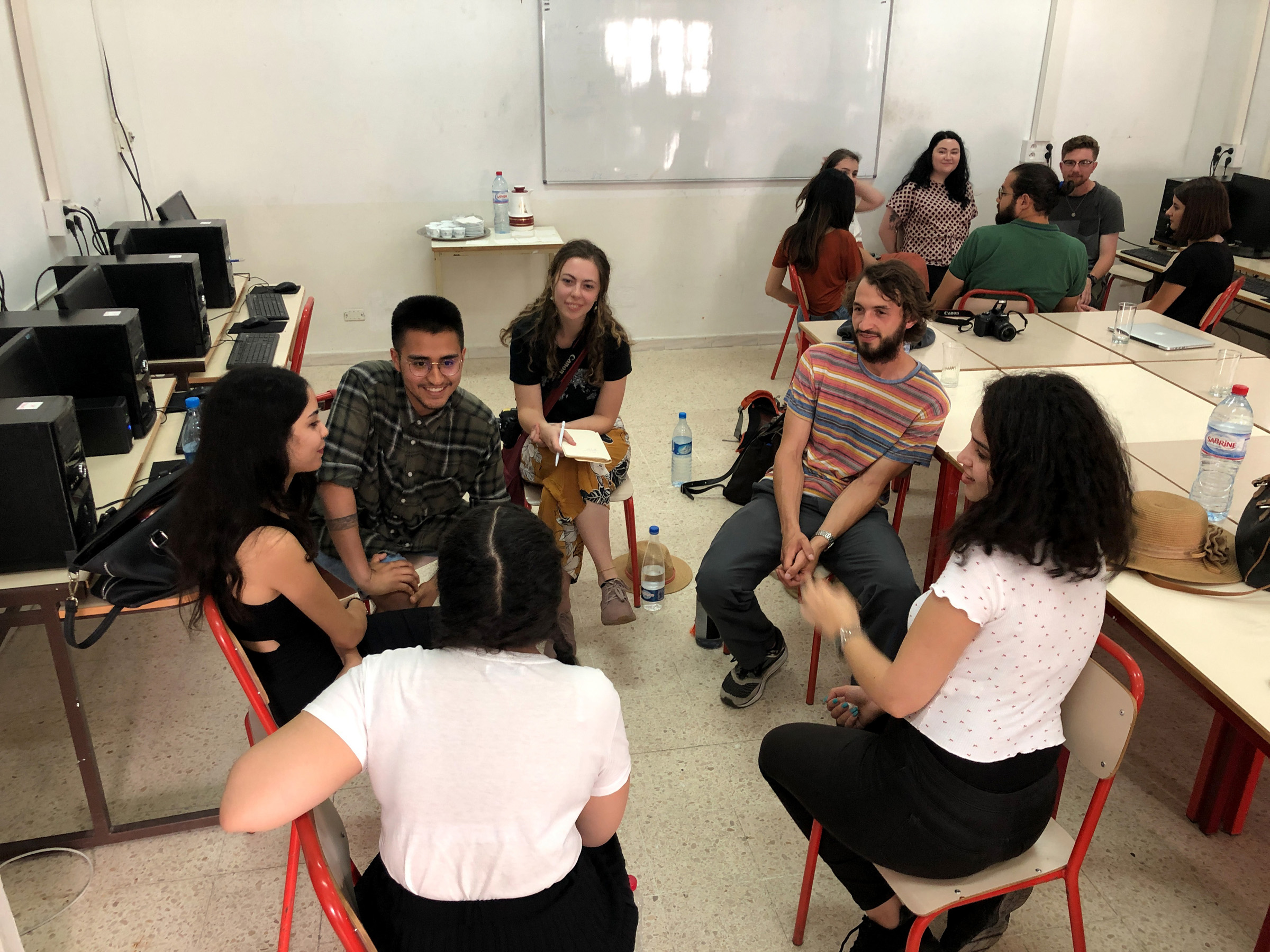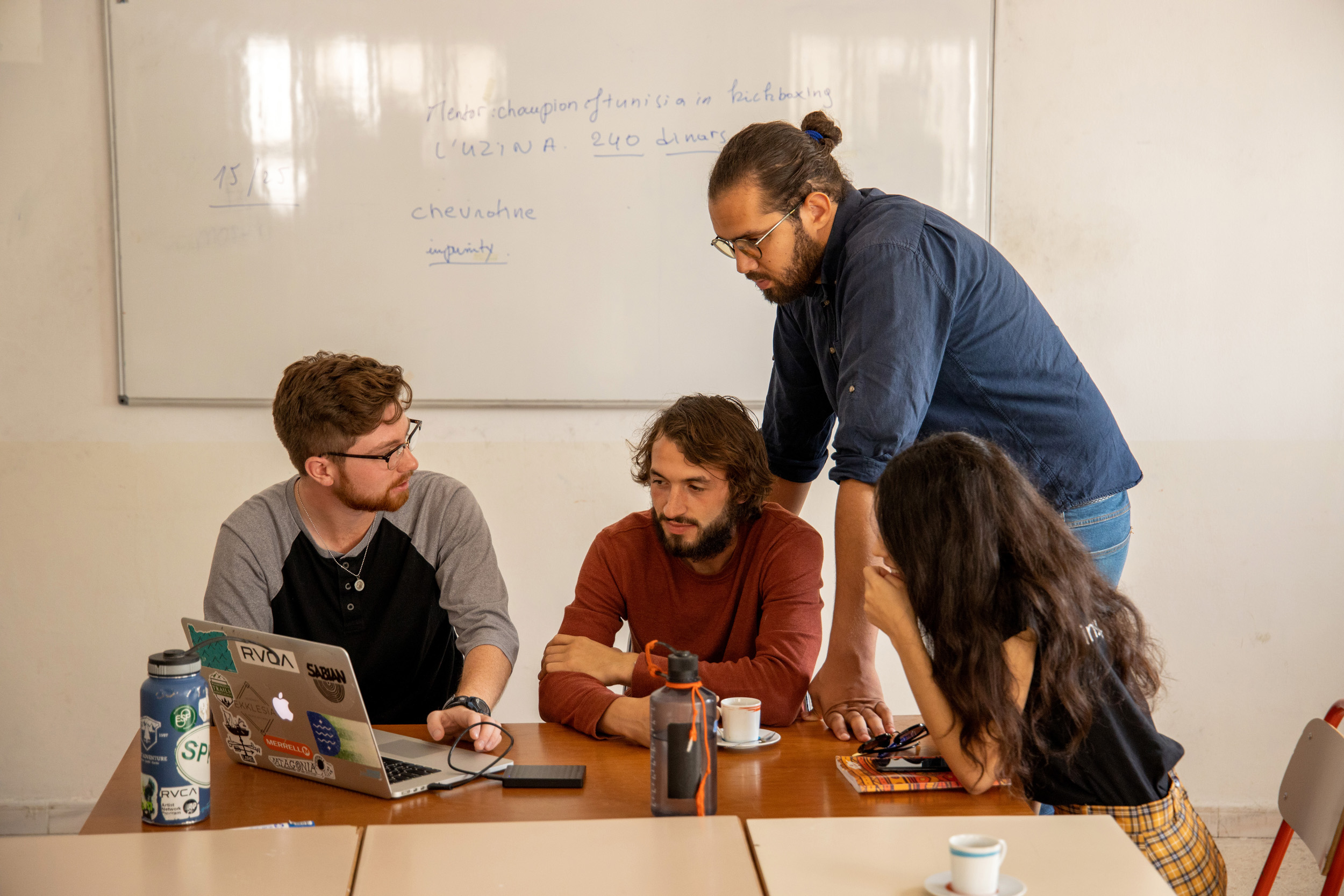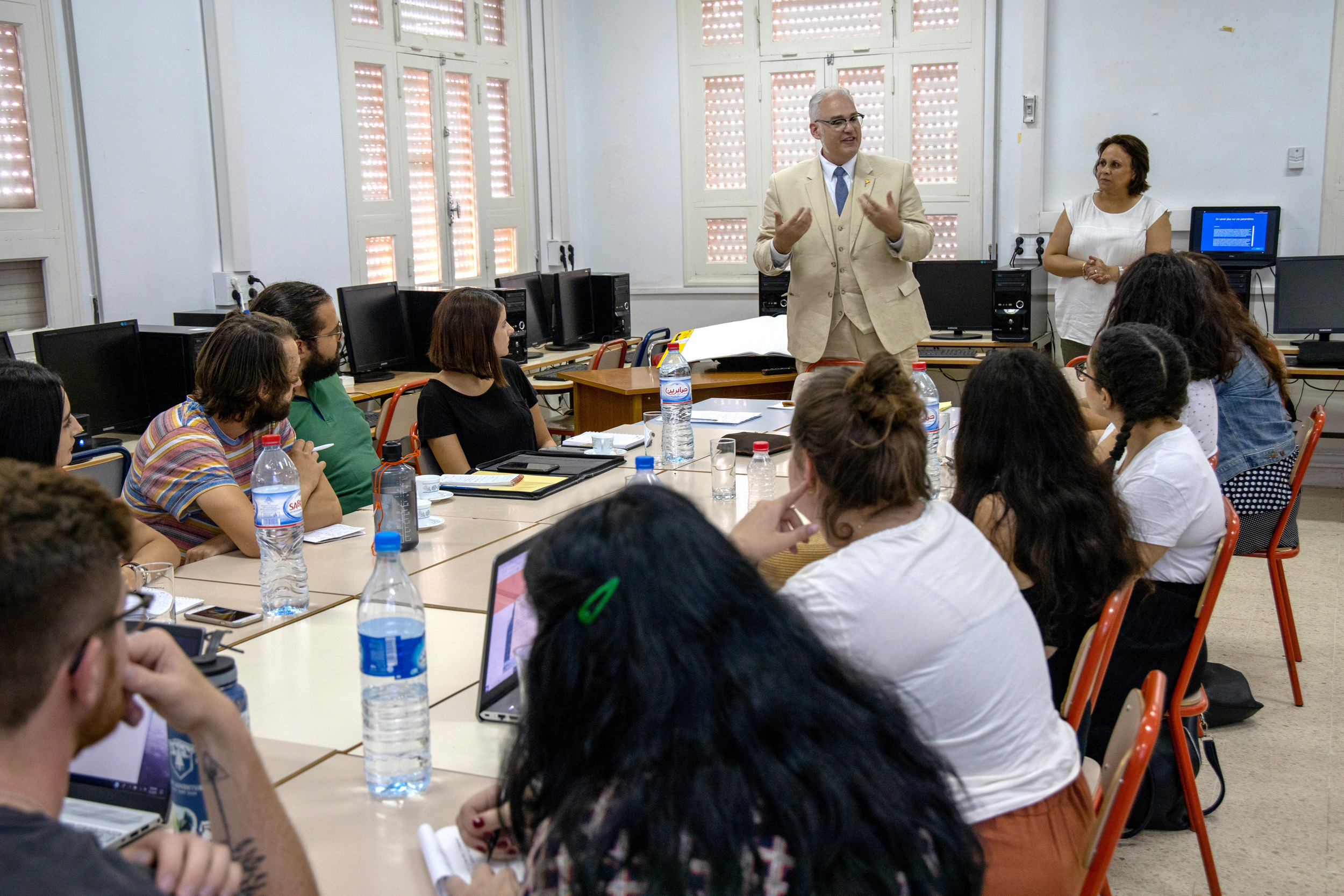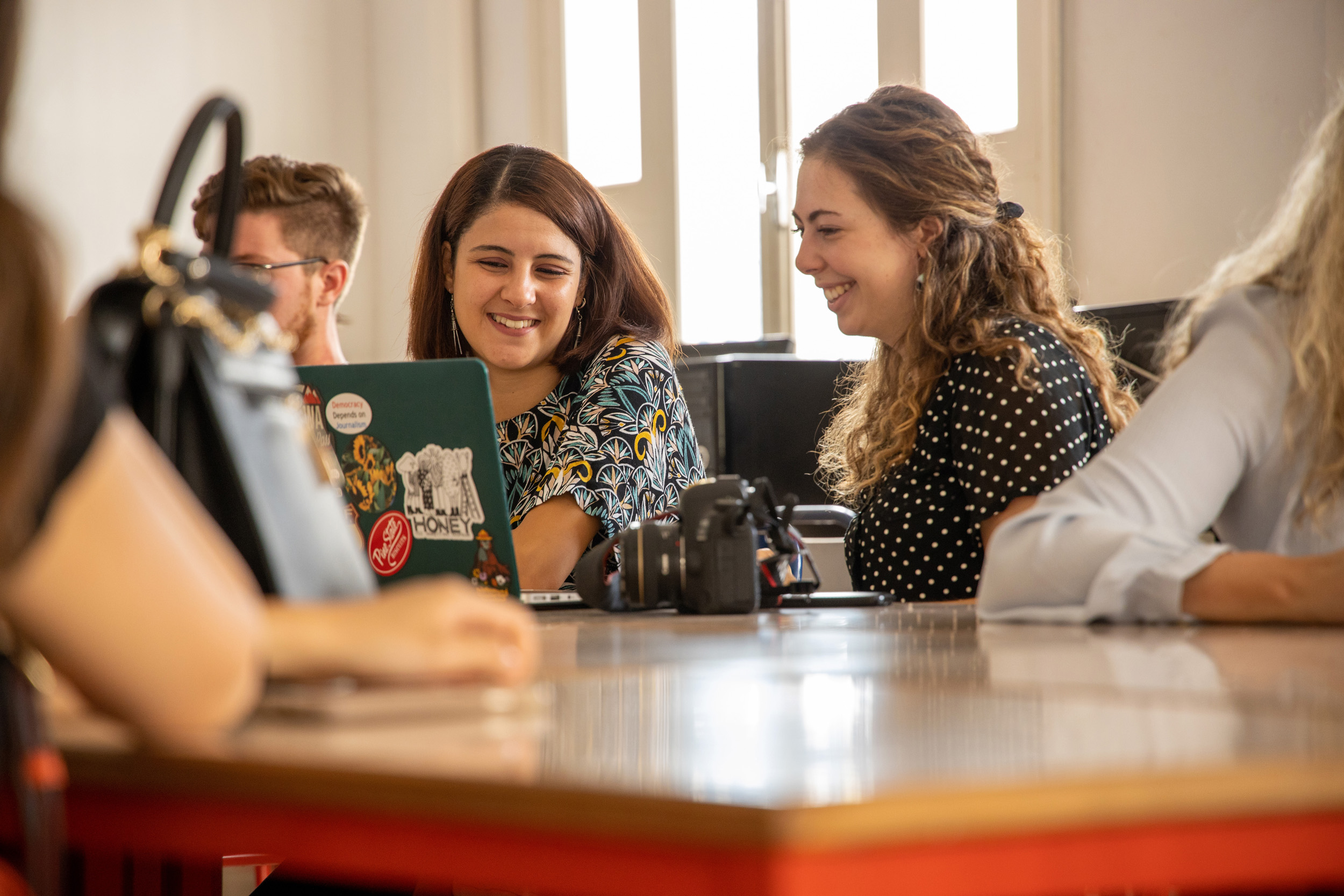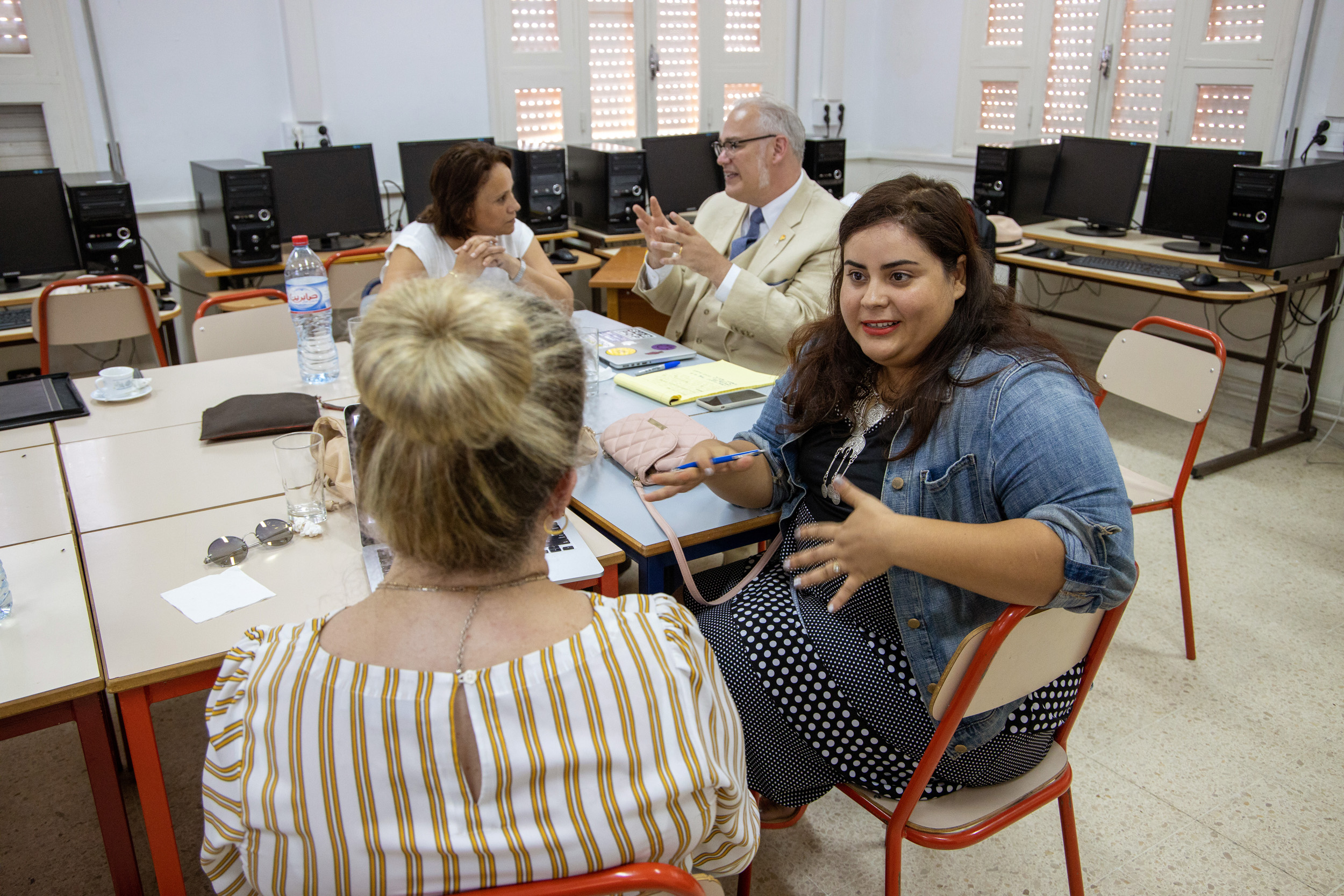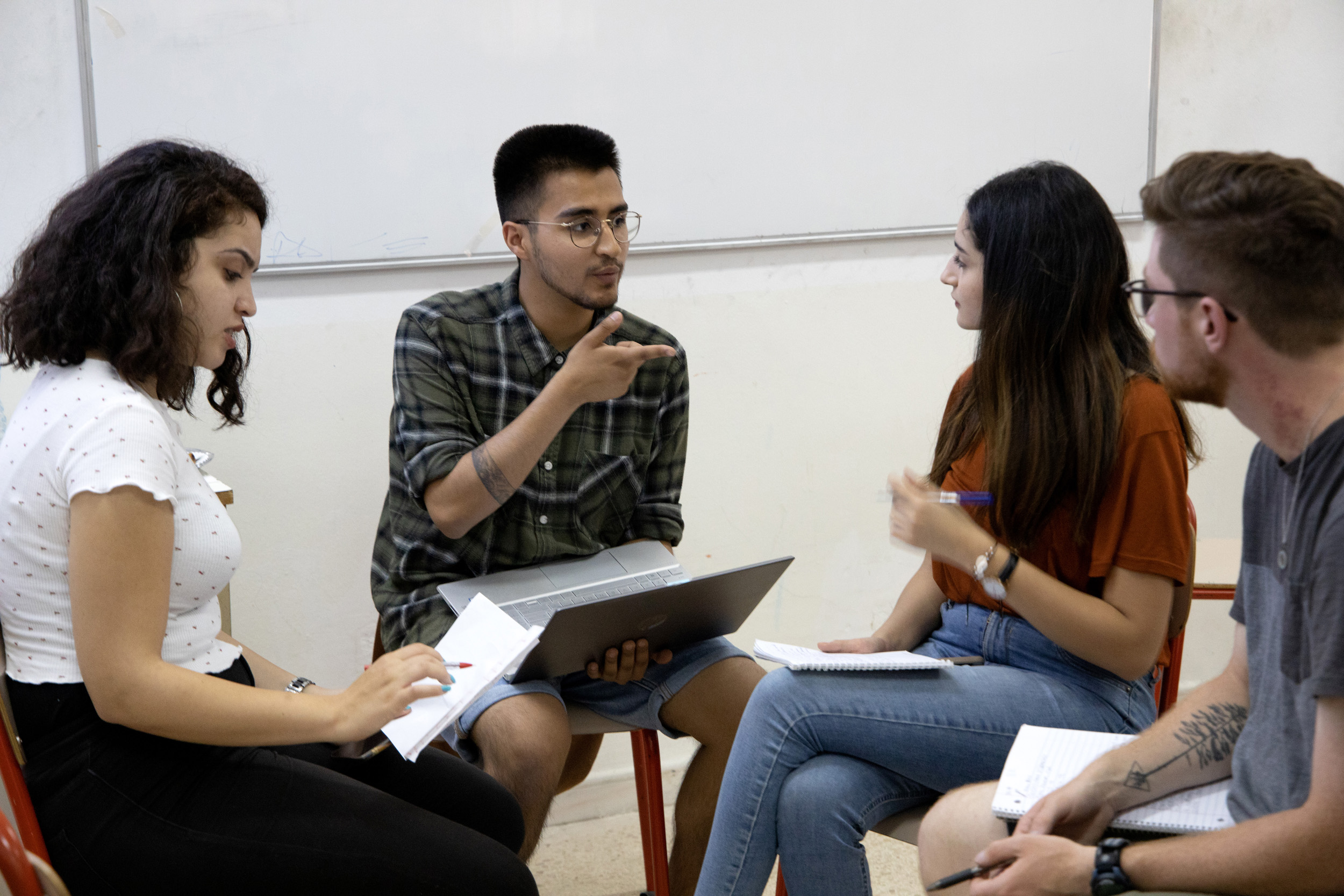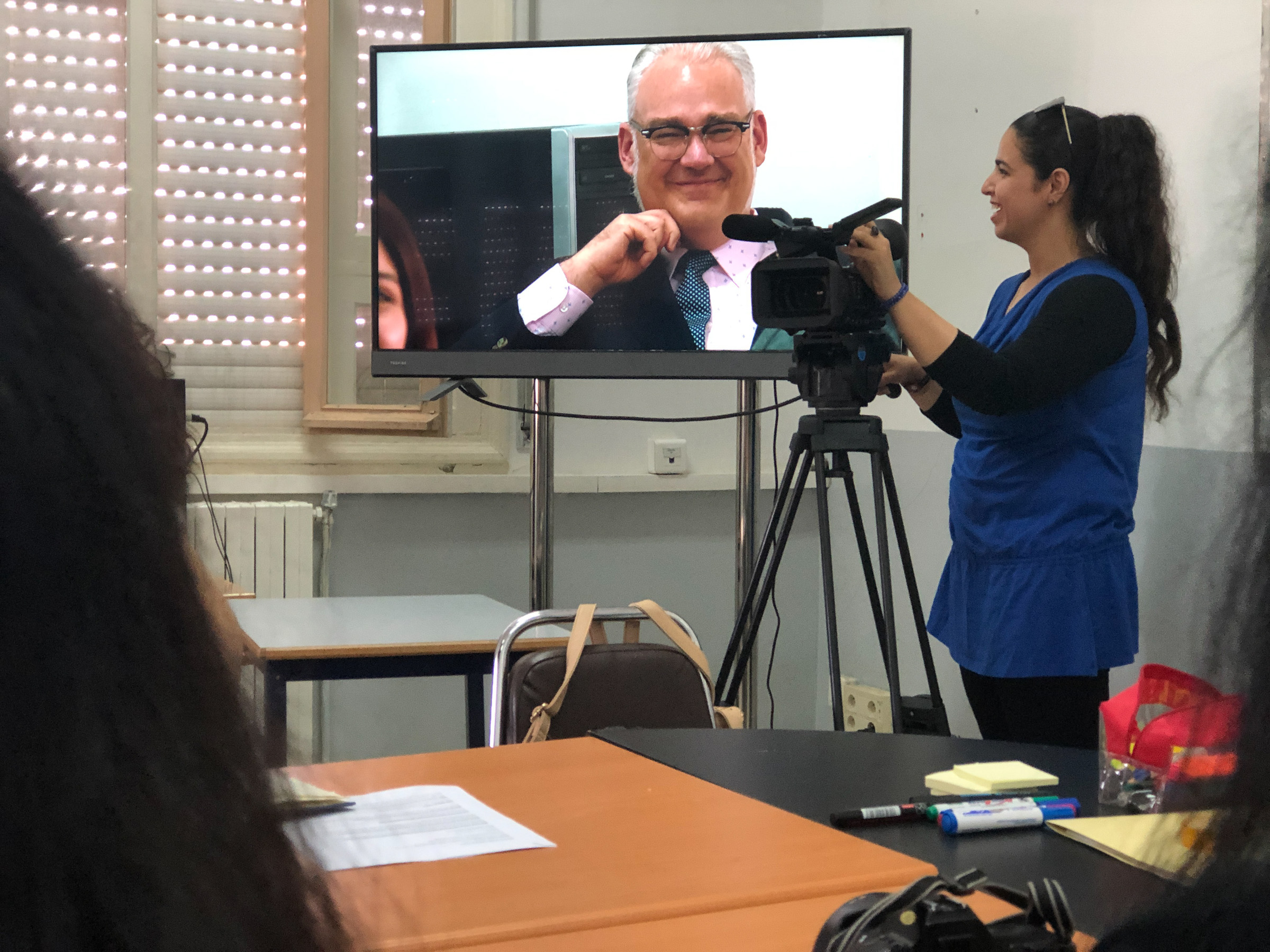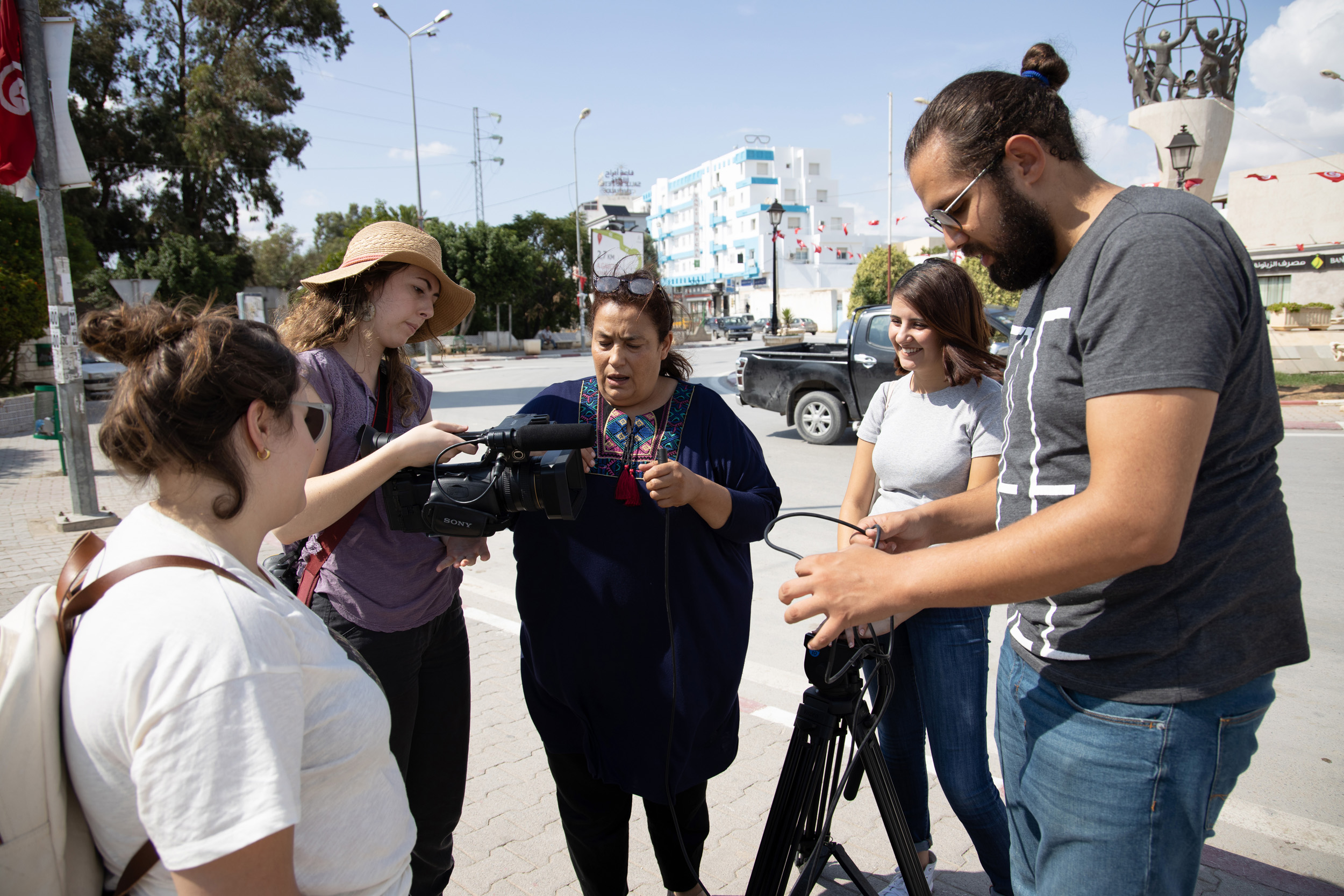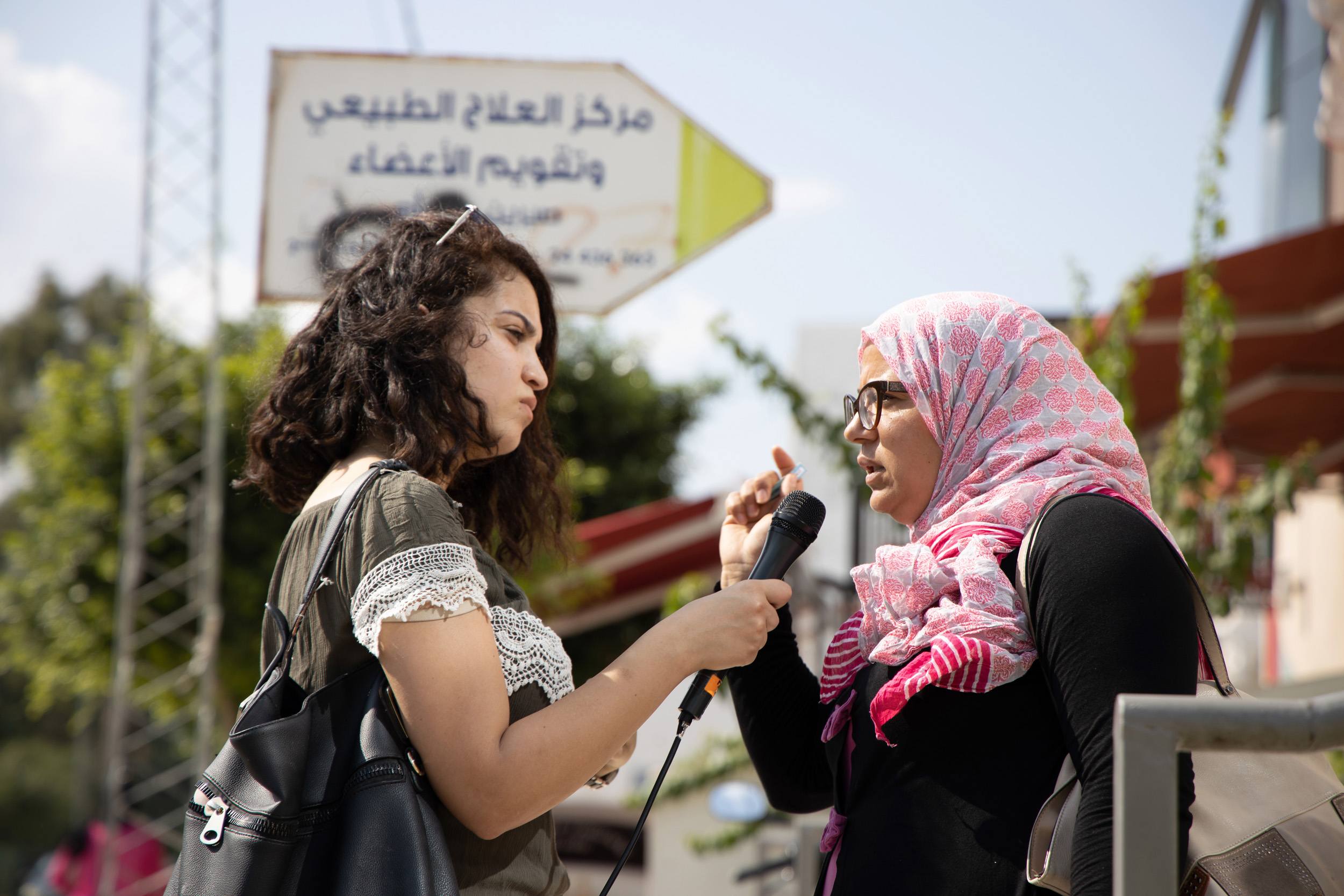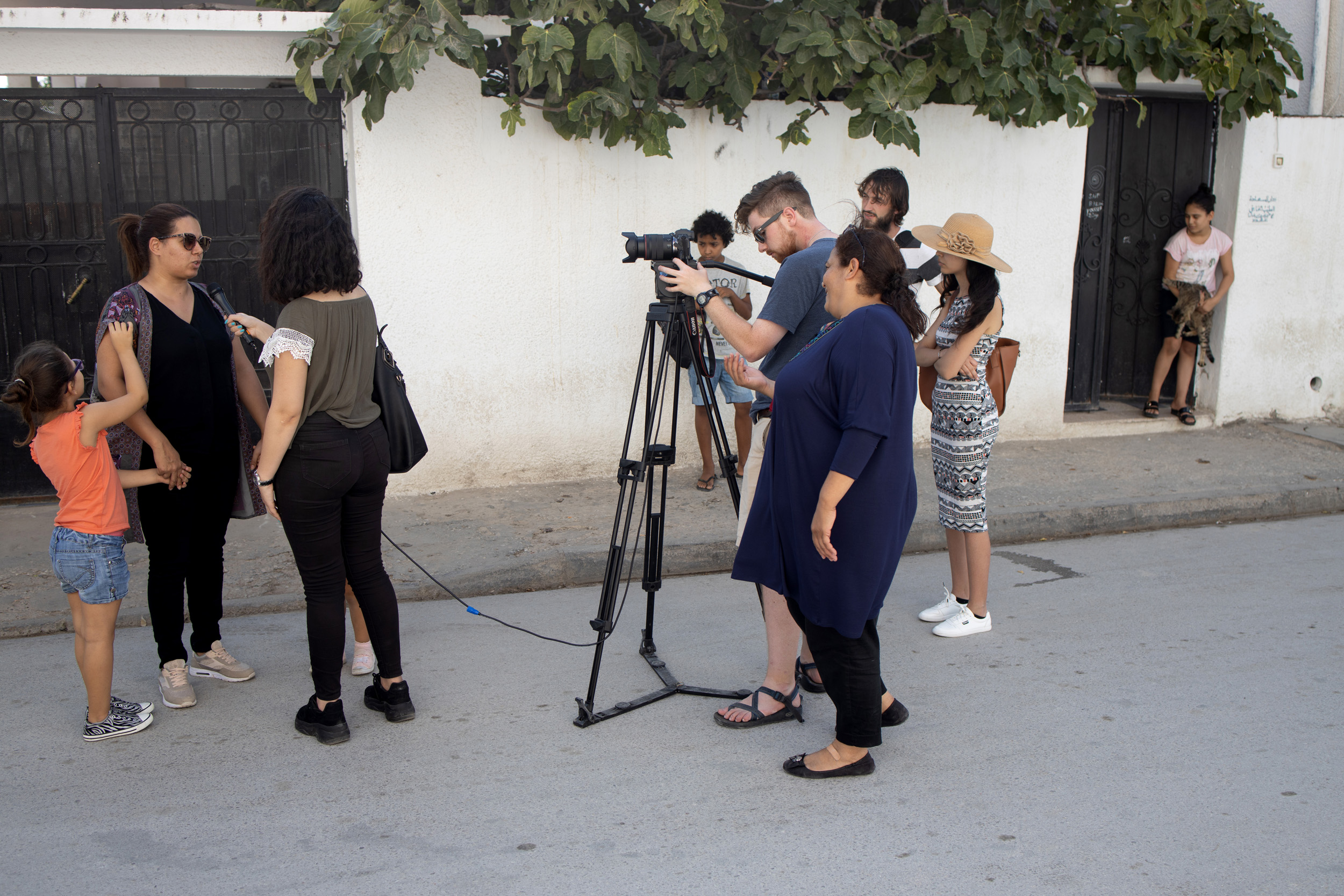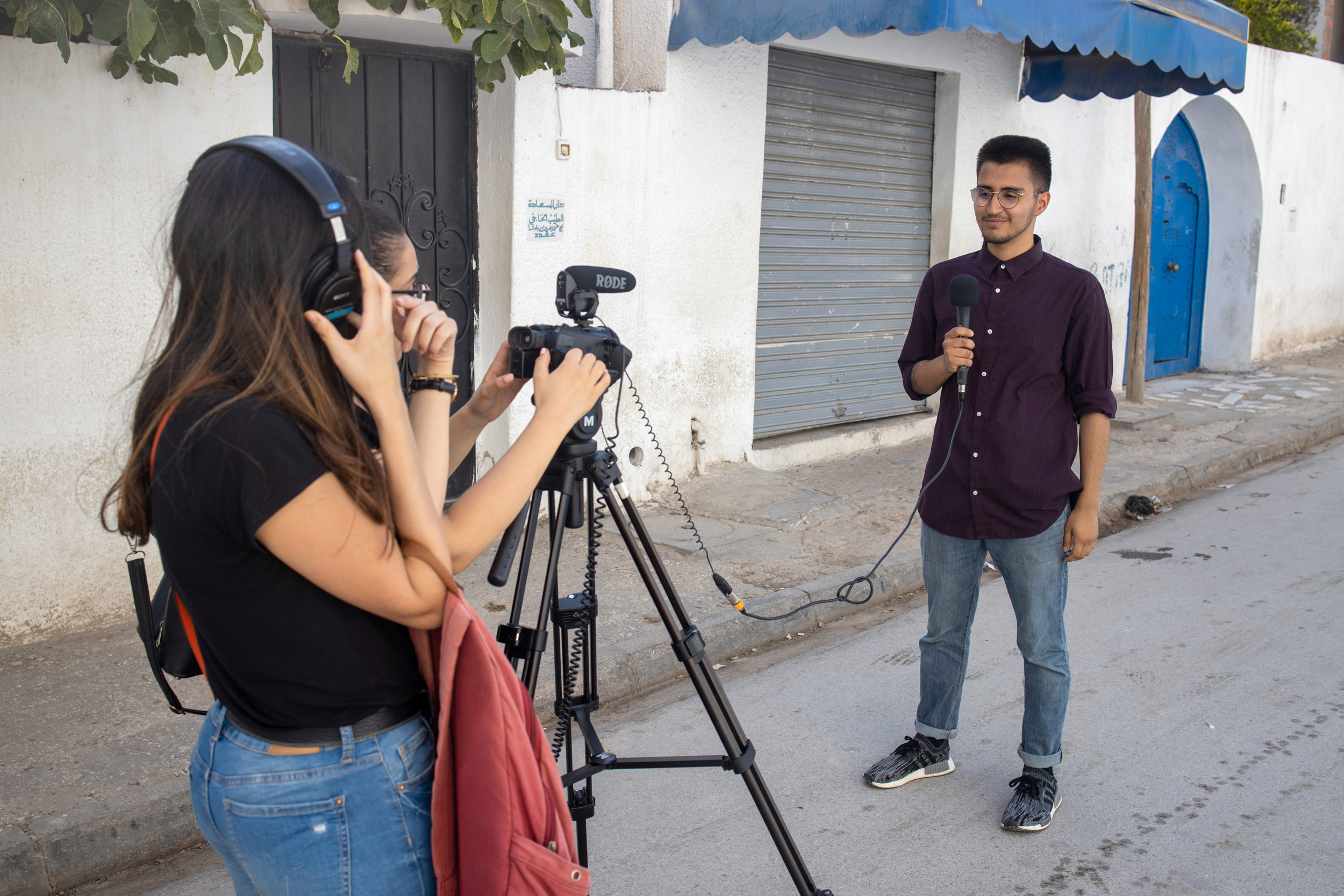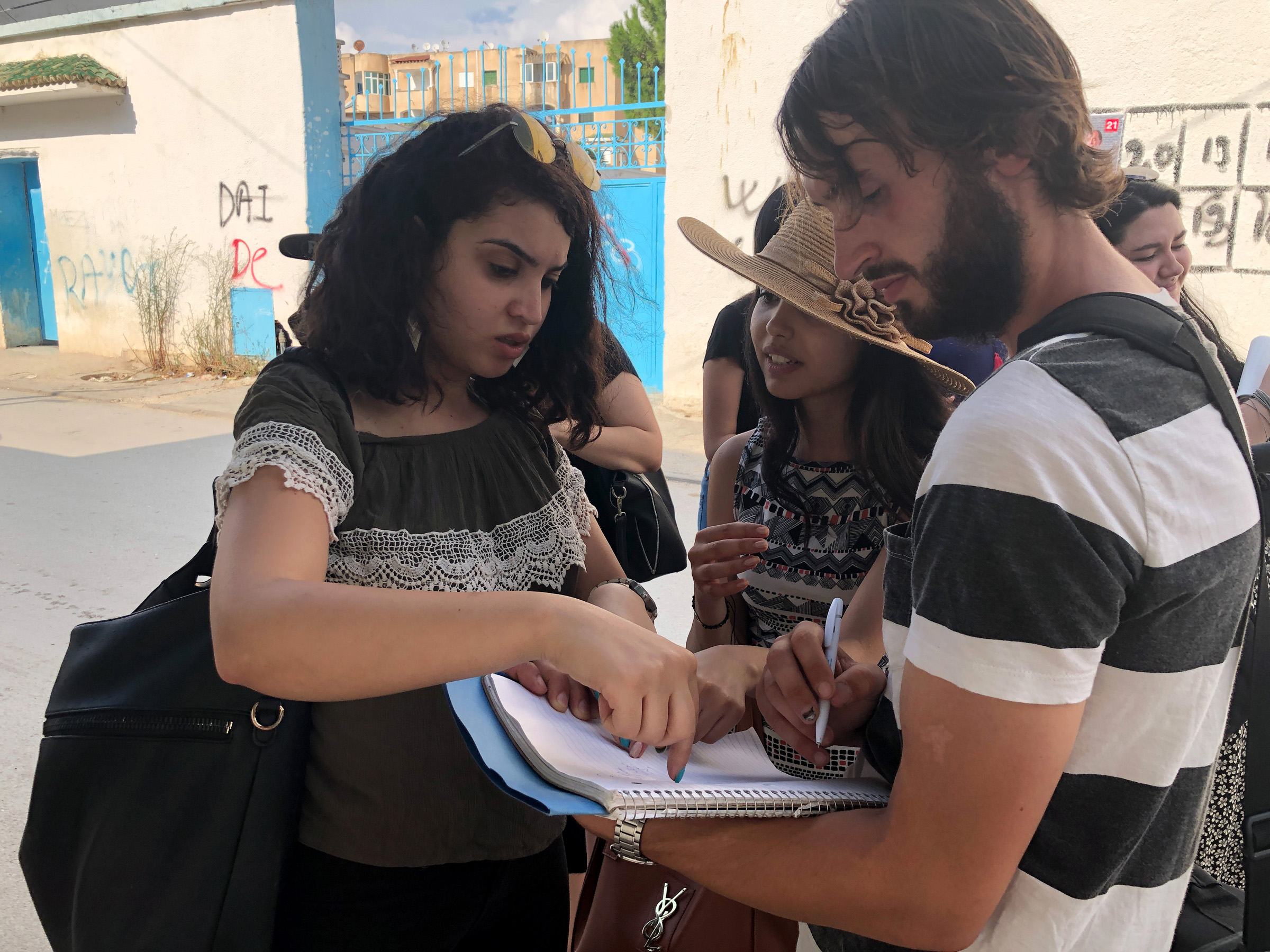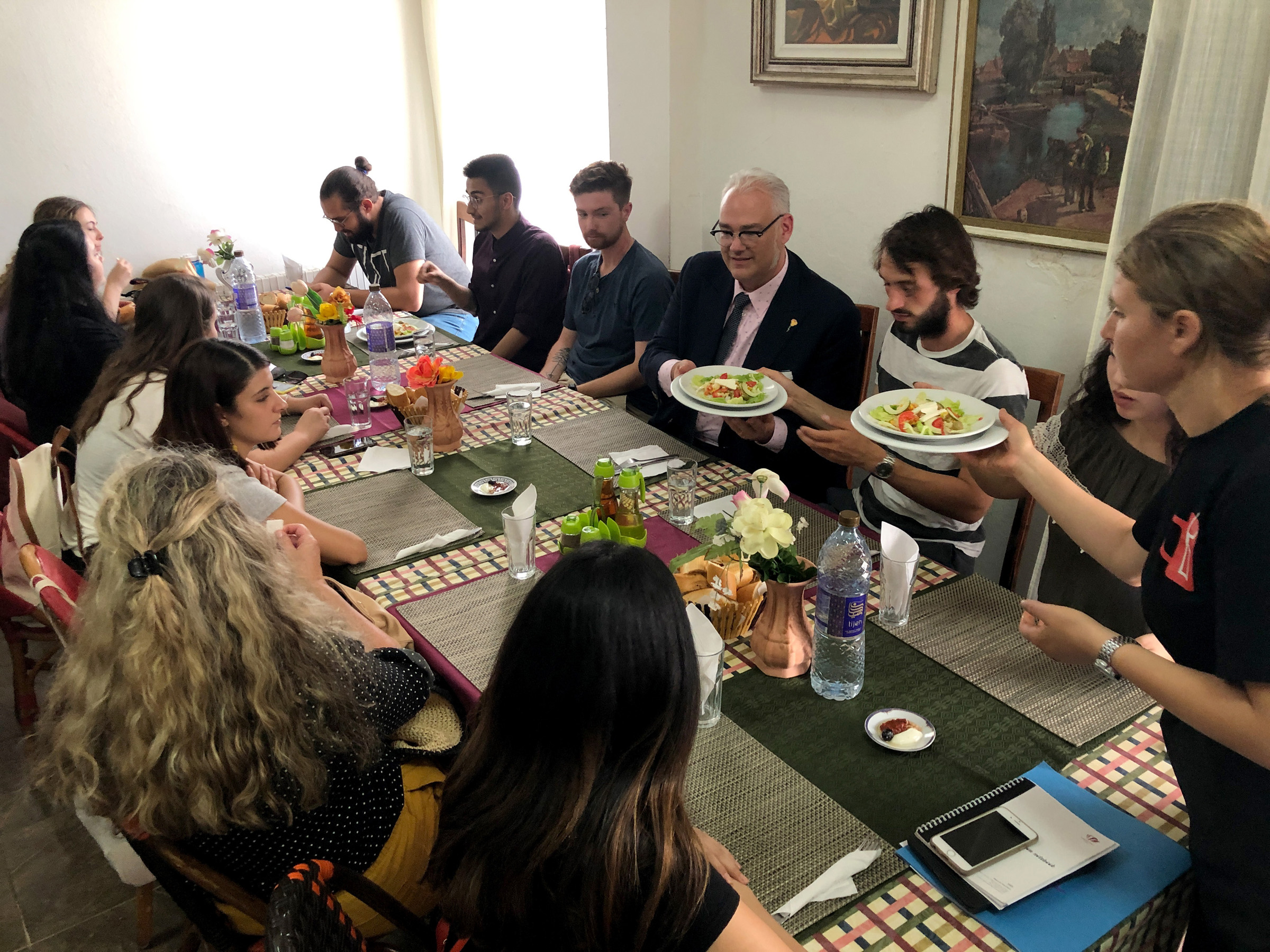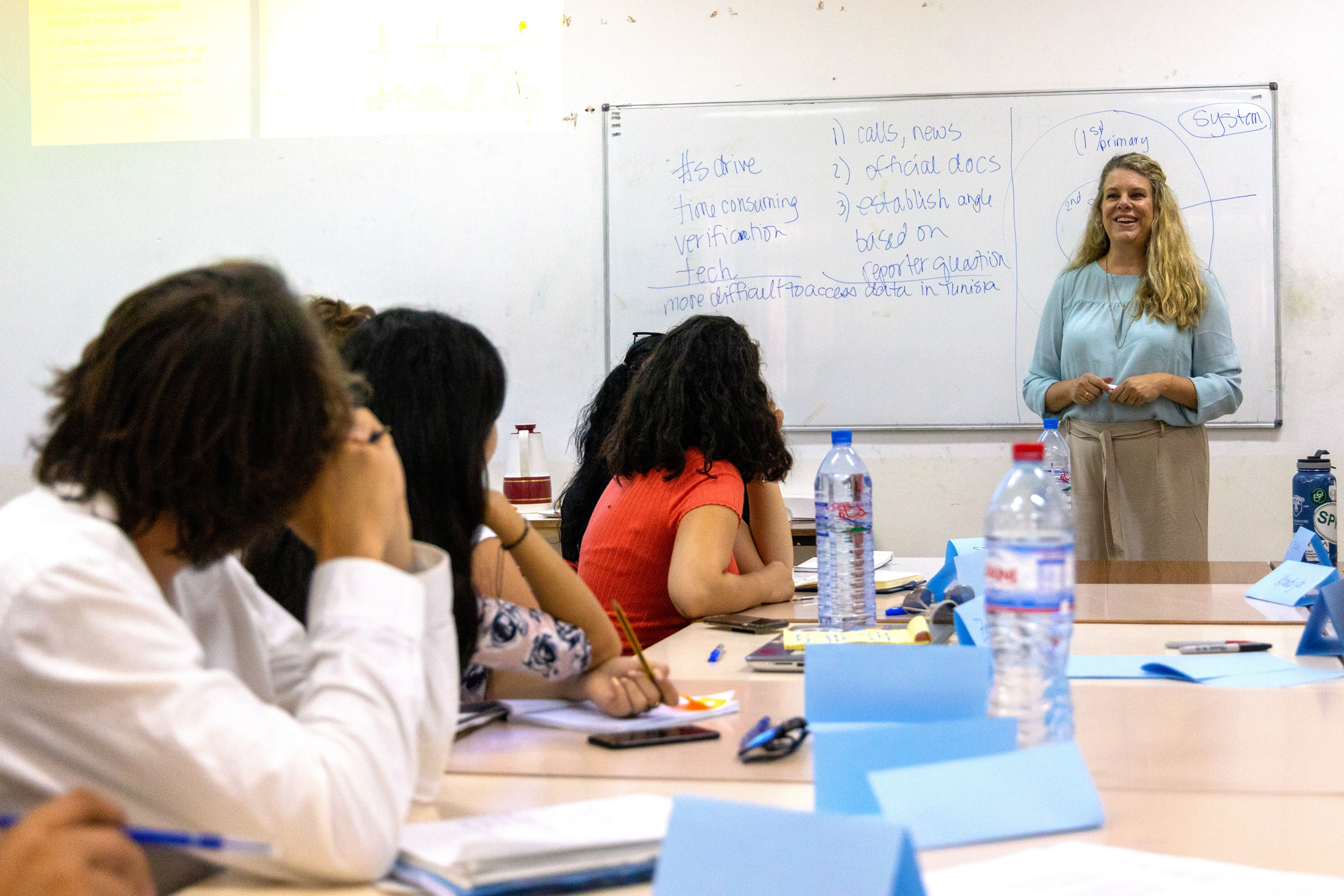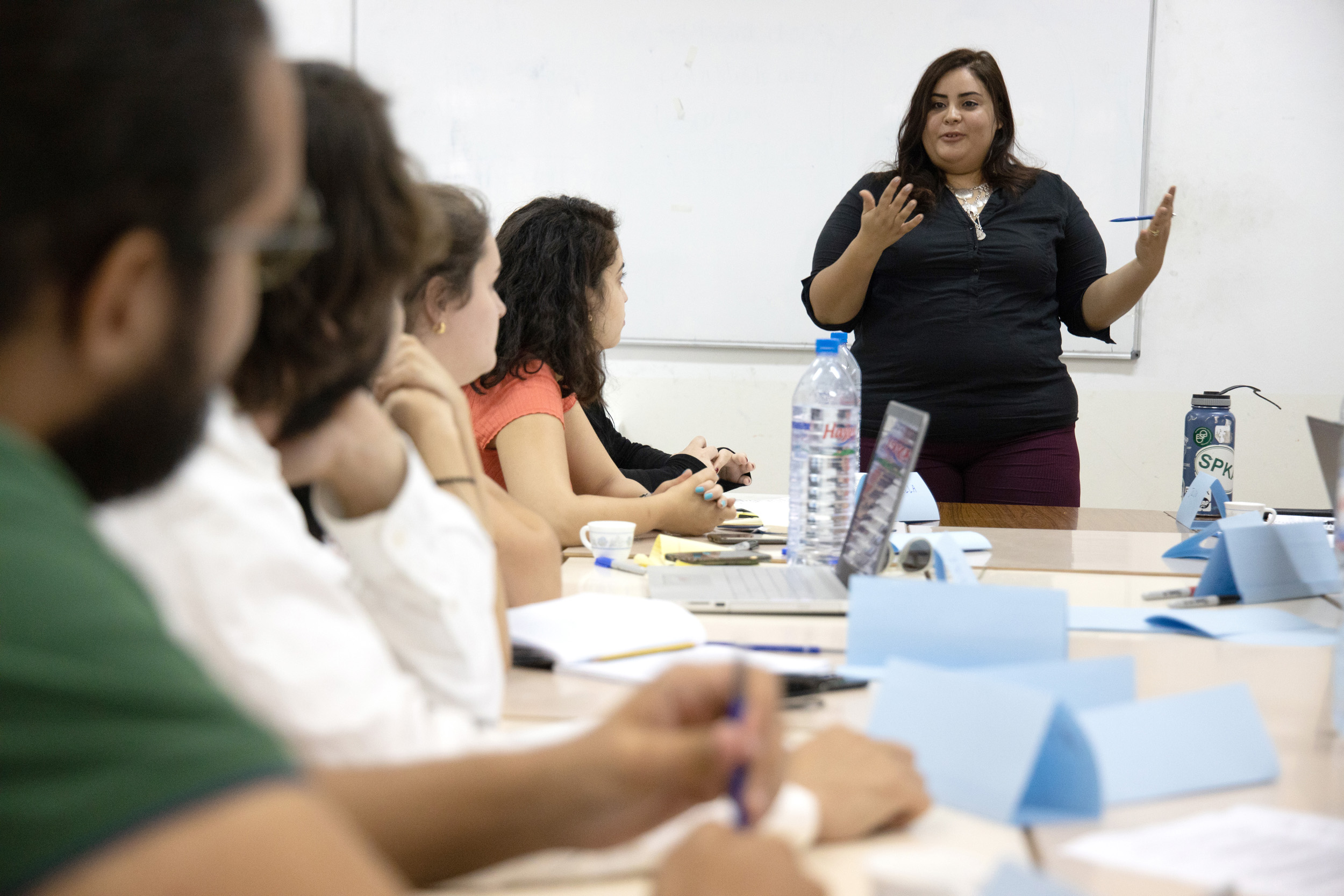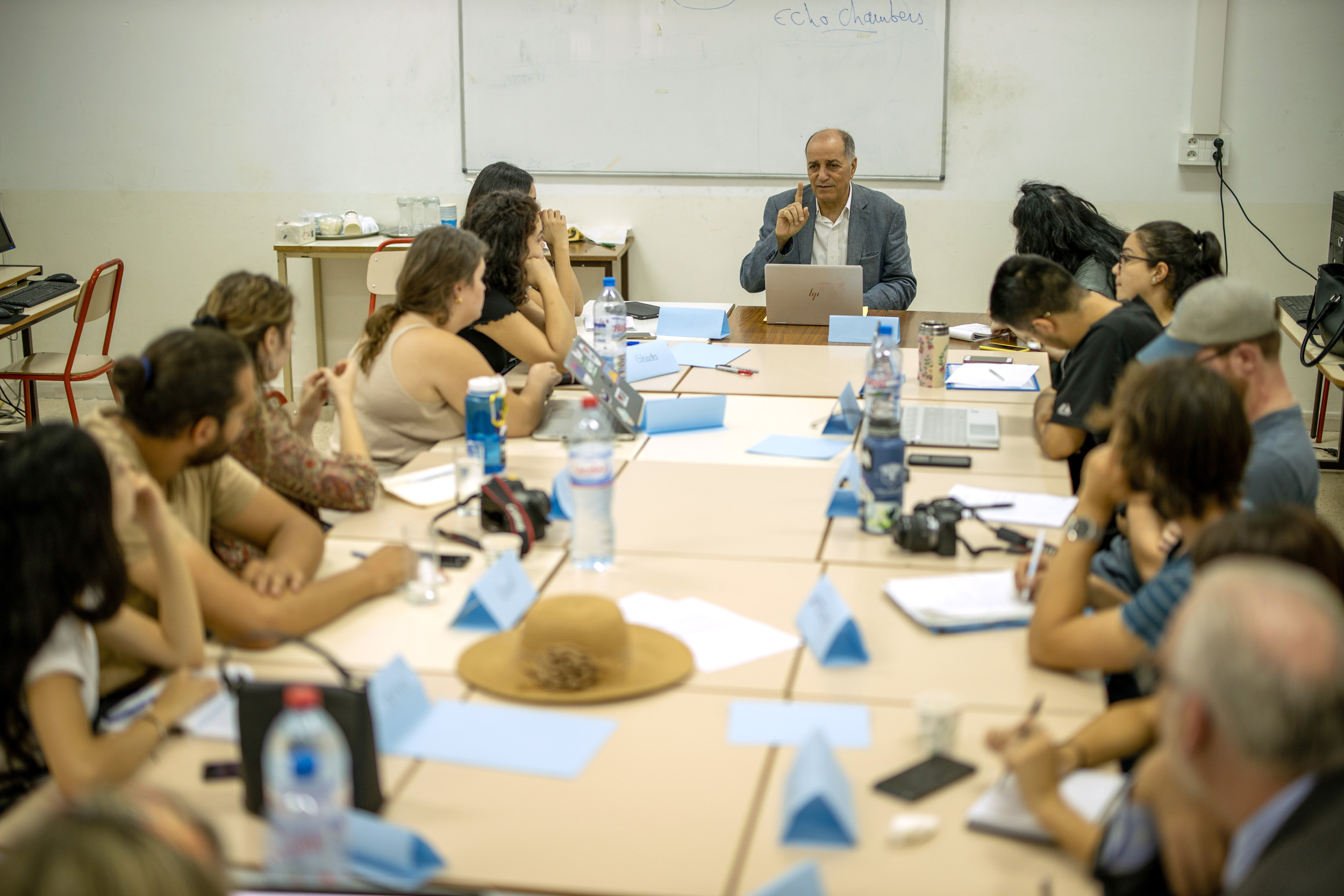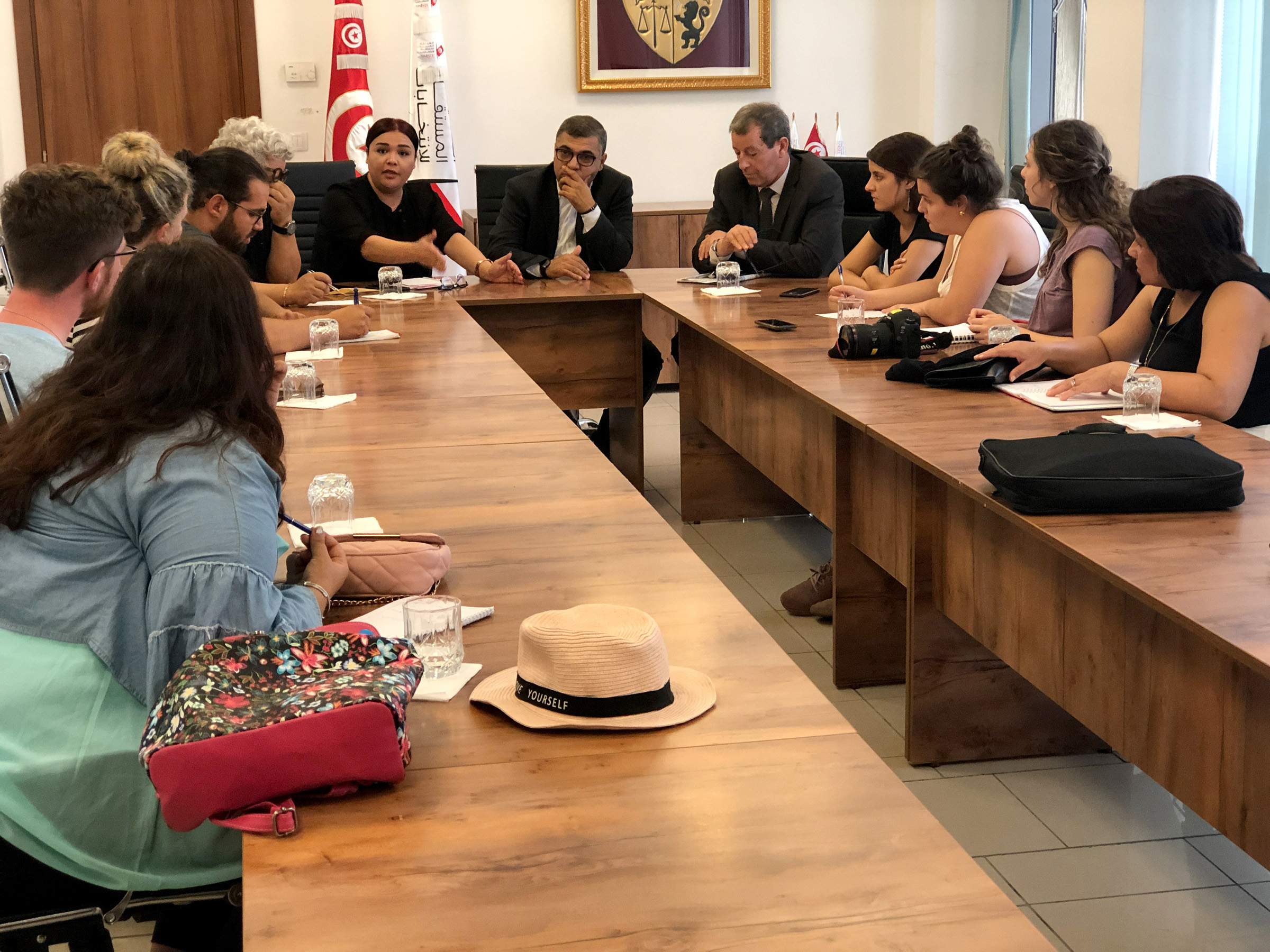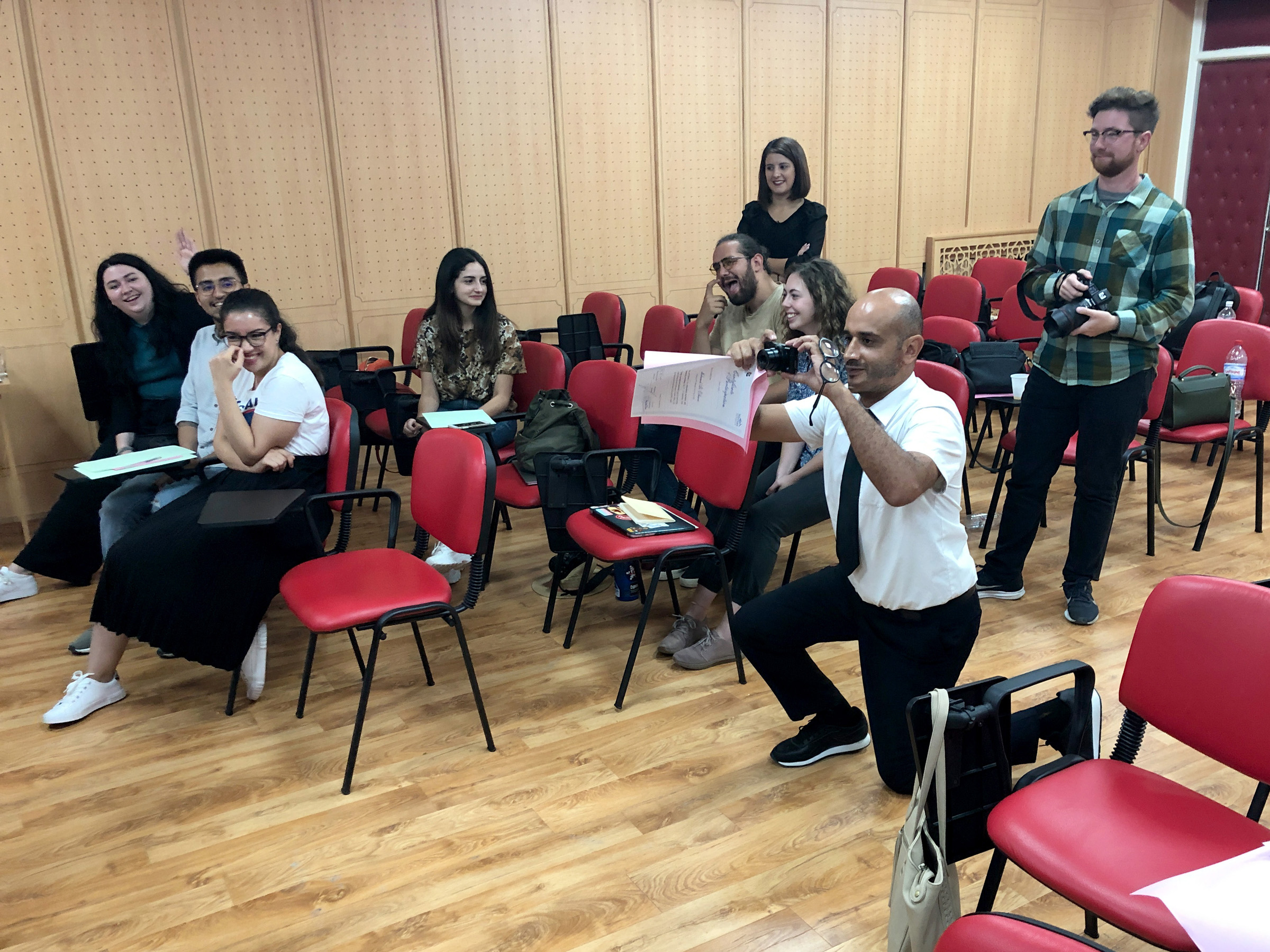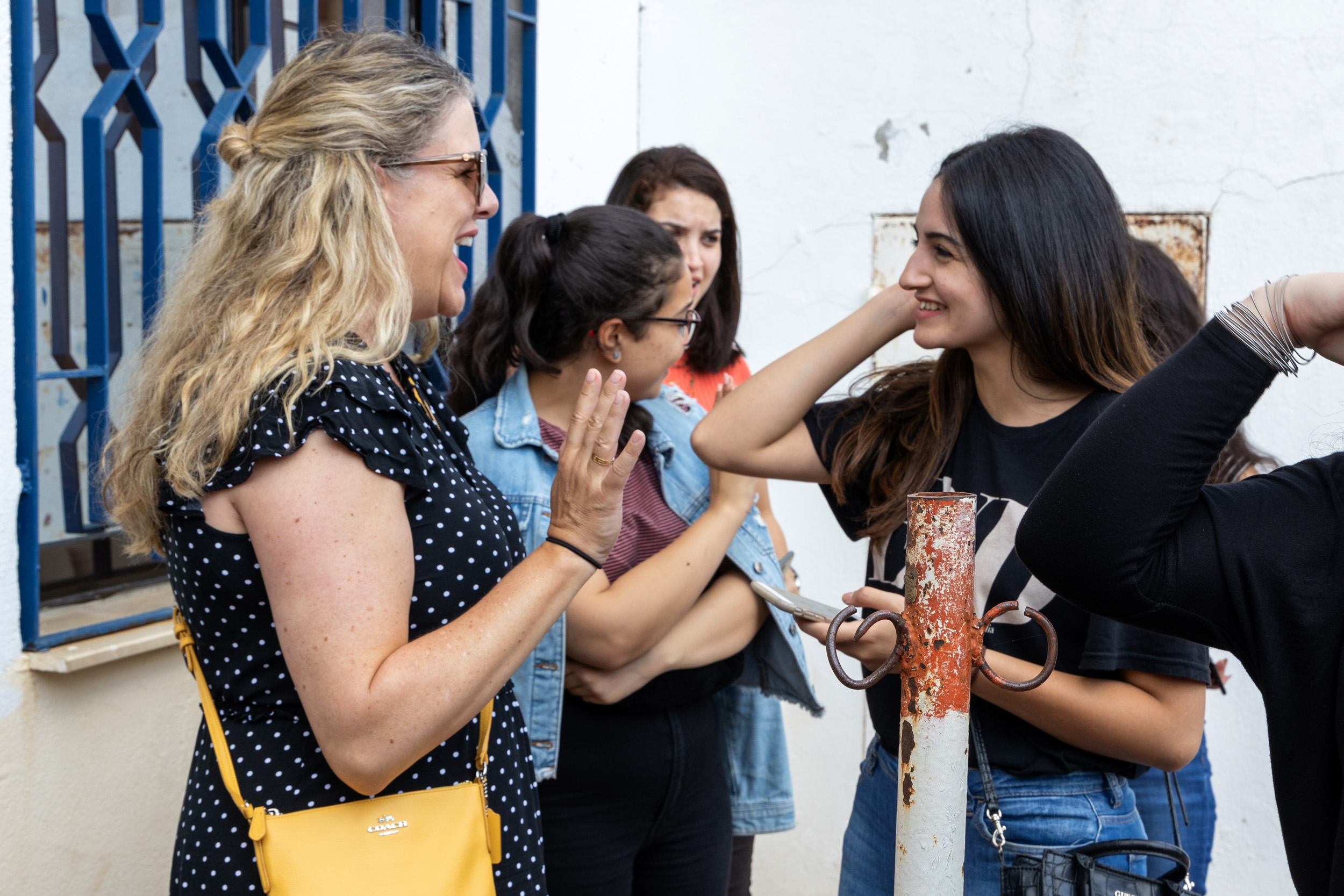Two Weeks in Tunisia
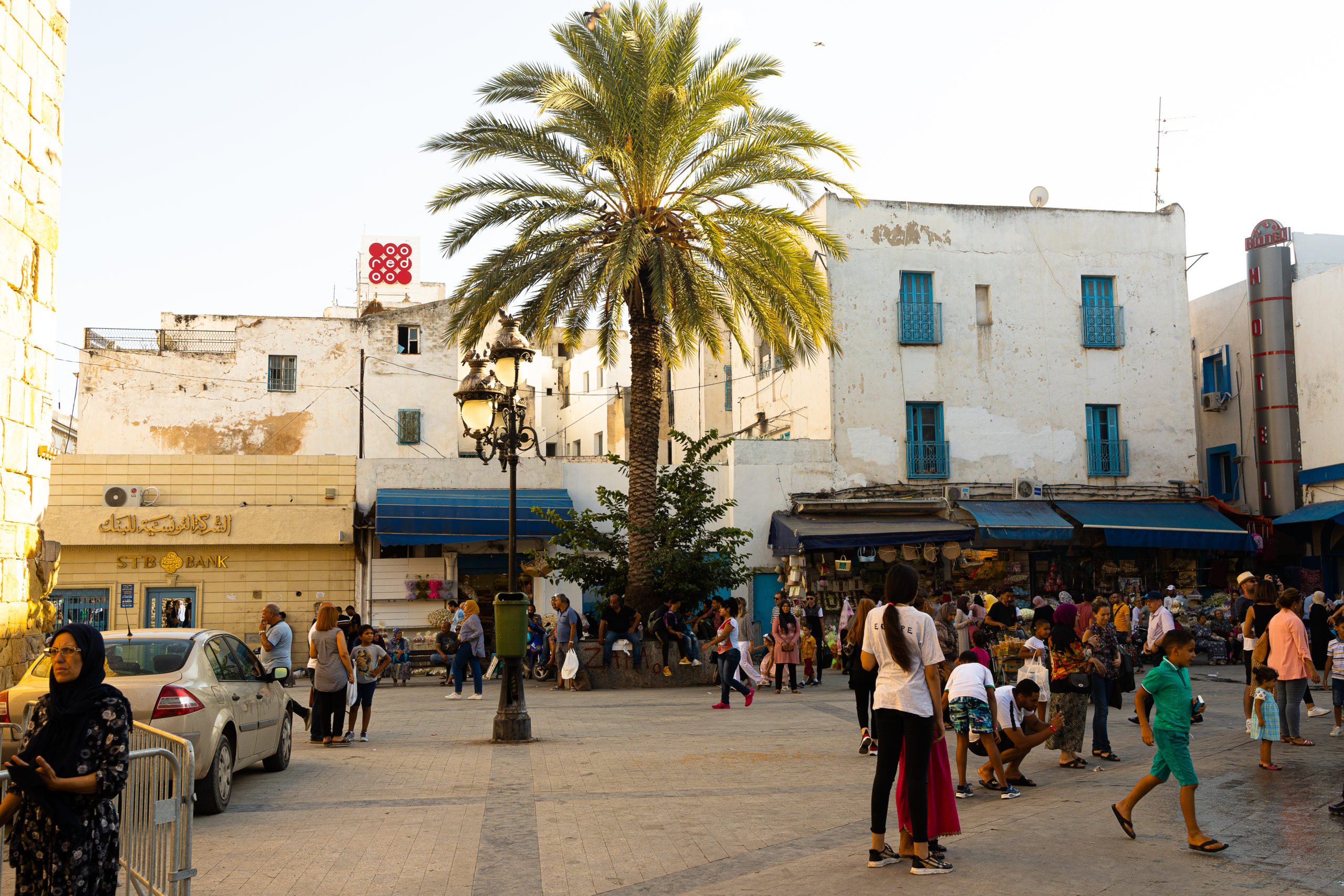
Journalism student reflects on her time learning about journalism in Tunisia
Story by Stella Harvey
In a lush park in the middle of downtown Tunis, sisters Chahira, 21, and Nawres, 19, sat on a park bench. I held out my phone and pressed record as they began to share their experiences of being young people during Tunisia’s 2011 uprisings.
“There’s one memory that I couldn’t forget. A boy who was probably 15-16 years old set himself on fire in our school and died,” Chahira said. “I was twelve years old at the time and I remember that we didn’t go to school for almost two weeks because of that incident.”
Reading the translations in my hotel room later that day, I was struck by the hopes and disappointments that echoed through each story. Understanding washed over me as I took in what an intense rarity and privilege it was to speak to young people who had experienced such a recent revolution.
Nearly 10 months earlier, I was working as a student editor for the first time in The Western Front newsroom when Ray Garcia, a friend and classmate, turned to tell me that six journalism students were going to be selected to go and study in Tunisia for two weeks.
We huddled around one computer, reading the short article that had been published about the International Journalism and Democracy Fellowship. With every detail, more butterflies filled my stomach: Tunisia’s 2011 revolution and the development of the country’s democracy; working with Tunisian journalism students and professional journalists; and working on an actual project while learning about journalism in an international context.
Now, shuffling through the airport with Ray, our fellow students and our trusted professors, I took a deep breath and thought, ‘you wanted to be pushed outside your comfort zone: here you are!’ Anxiety ringing in my ears, I thought about why I first became interested in Journalism during my first year of college. I loved the challenge of putting all the pieces of a story together, asking questions and painting pictures with my words, but more than anything I loved that telling stories and questioning systems gave other people more power to build a world they want to live in. I took another breath in, and out. Closing my eyes, I told myself that this opportunity would make me a more empathetic and critical journalist, I just had to take the leap.
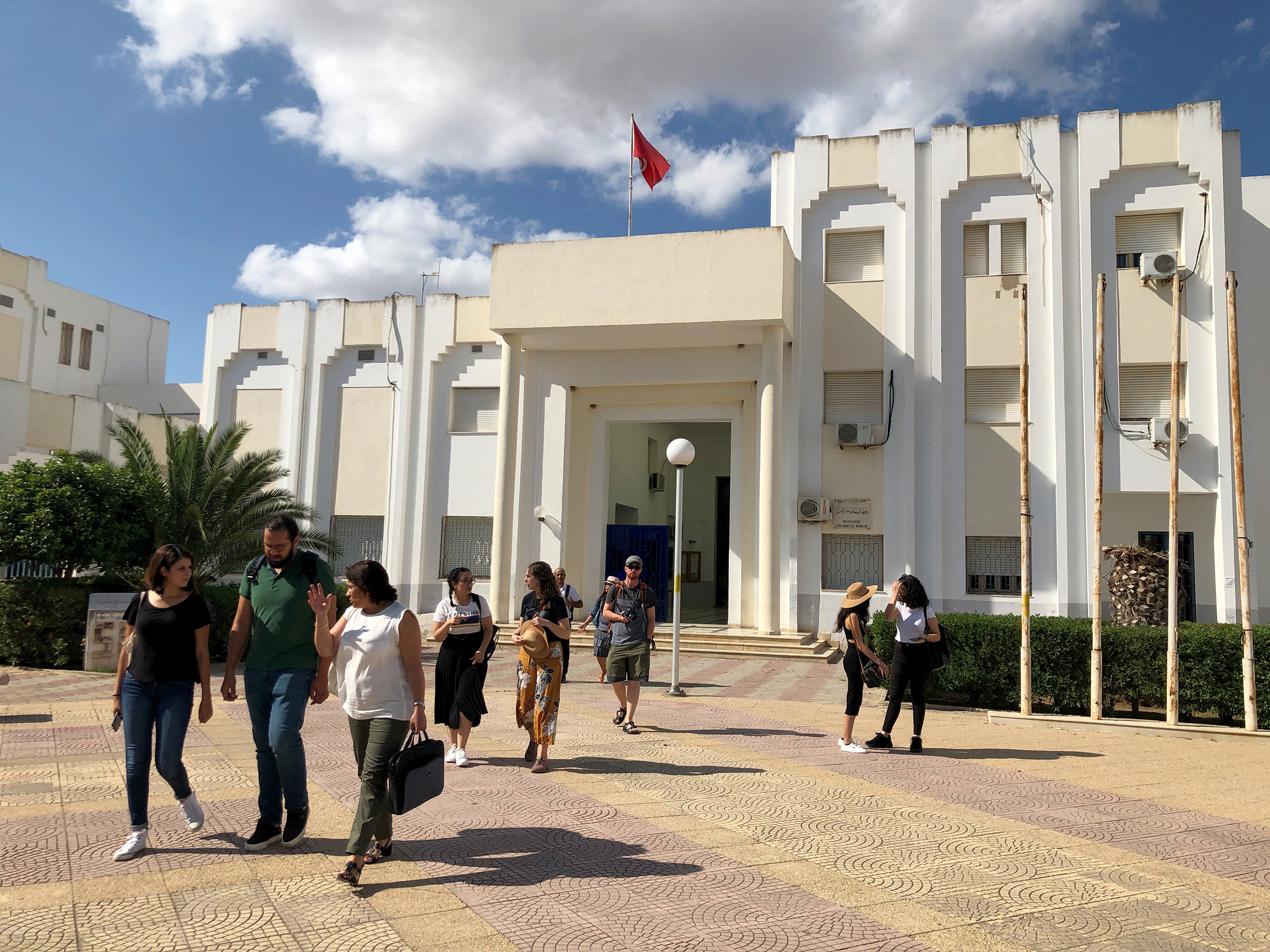
After an eleven-hour flight, a three-hour layover and another three-hour flight, we arrived in Tunis, Tunisia, as the sun was setting. Warm blues, purples and pinks painted the sky as we sleepilly made our way to our rooms for a night of rest and recovery.
In the morning, we boarded a bus to the Institut de Presse et des Sciences de l’Information (IPSI) in Manouba, a smaller city just outside of Tunis. The temperature steadily rising to the mid 90s, we drove through the turquoise-speckled city. It was the height of Tunisia’s presidential election campaign season, and billboards advertising campaigns of 26 candidates lined the roads. We passed buildings with colorful tile and tall palm trees until we approached IPSI’s angular, white exterior.
The nervous energy I’d usually feel when I sit down with a source flooded my system as we entered our window-lined classroom. We found our seats around a large table made up of individual desks in the center of the room, and just like the first day of school, broke into groups and played icebreaker games. Cracking jokes to ease the tension, we learned each others’ names and traded social media handles.
Over lunch, my nerves settled as we talked about what drew us to become journalists. Khadija and Sabrine, me and Ray’s Tunisian partners, told stories about growing up in a time of intense change in the country, reflecting on what it was like to be a young person during the Jasmine Revolution, and now, the second presidential election.
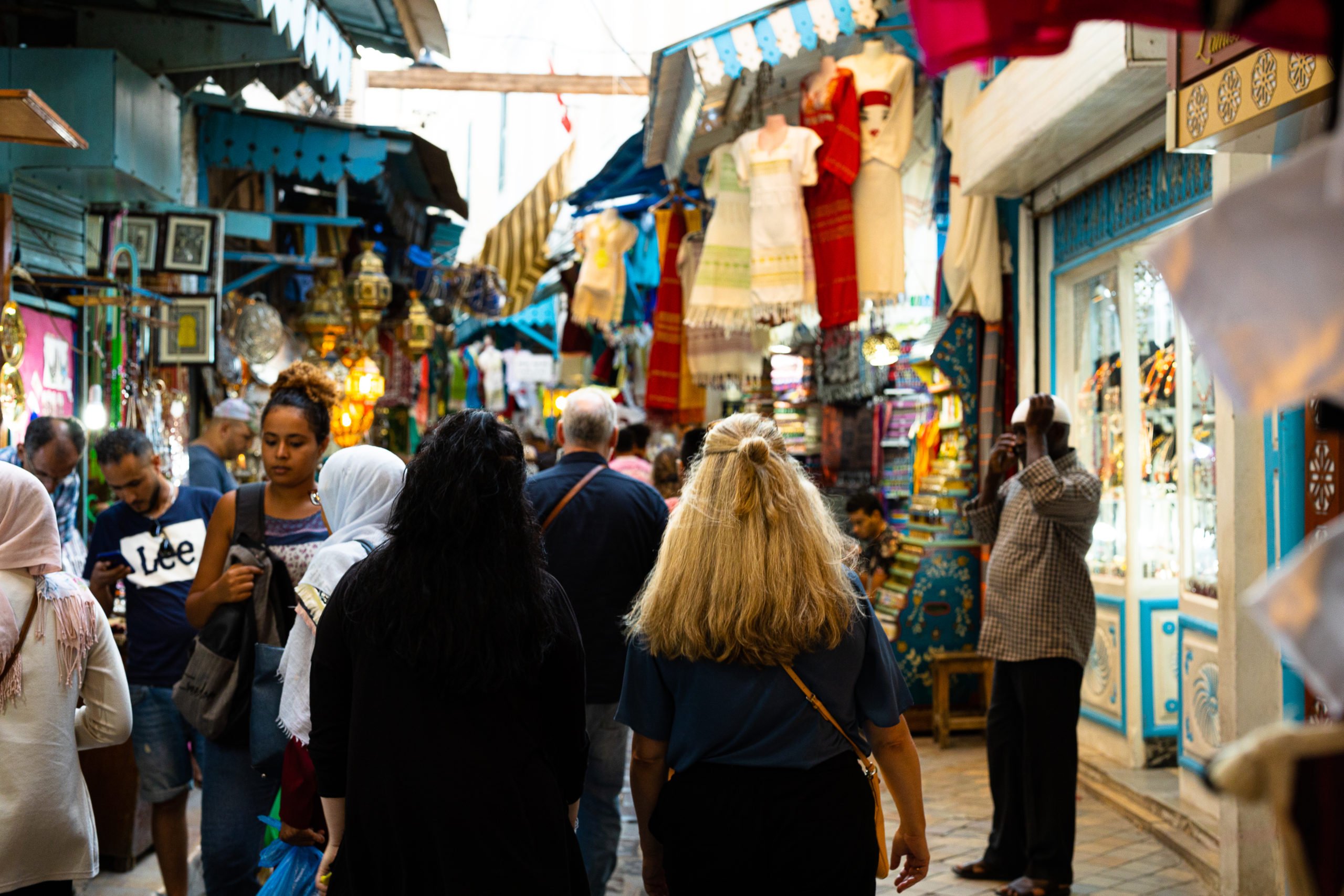
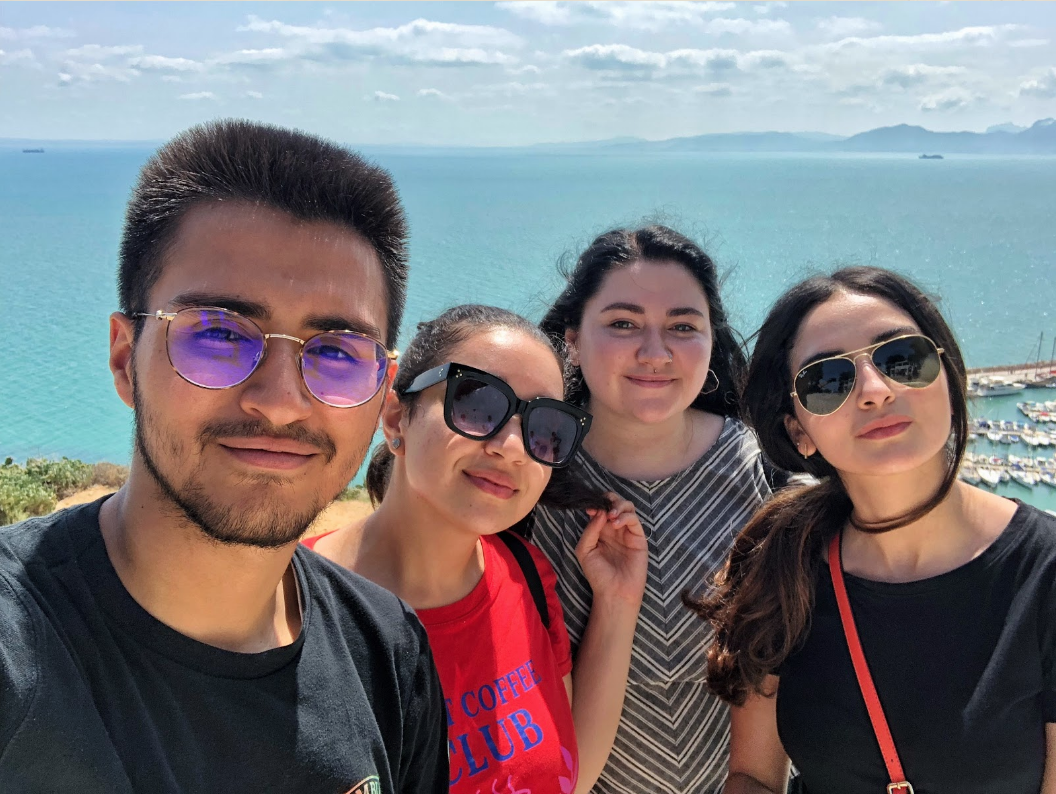
While we discussed the role of journalism in democracy, learned about ethical photojournalism and practiced filming interviews in the streets of Manouba over the next week, each group of two American and two Tunisian students brainstormed ideas for our reporting projects. After combing over data and research on Tunisia, we noticed the voices and stories of young people who now have the opportunity to vote for who they want to see lead their country were missing.
In our dim, air-conditioned classroom, Ray proposed we collect a series of portraits and profiles based on Humans of New York project, focusing on young people’s hopes and expectations for the election that was quickly nearing.
With five days left in our trip, we took to the streets to conduct our interviews. Clutching my notepad and phone, we started our interviews in a lush park in the middle of downtown Tunis. Ray and I listened as Khadija and Sabrine interviewed people in Arabic and French, quickly recapping their stories before we snapped a portrait with our iPhones.
We moved to the glistening white and turquoise city of Sidi Bou Said. Temperatures reaching nearly 100 degrees, we interviewed people on cobblestone streets in the direct sunlight, magenta bougainvillea reaching down from tall concrete walls. Then, we traveled back to downtown Tunis closer to the winding streets of the Medina. Grey clouds encroaching on the blue skies, we wrapped up our interviews as fat raindrops began to fall on the crowds of people shopping or commuting on the bustling street.
Returning to the lobby of our hotel, we sank into soft couches and drank water to recover from being in the bright sun all day. As we began to translate each interview and select photos, in the lobby of our hotel, I was struck by how powerful each story was. The experiences and stories our sources had shared with us shown new light on the data and research we had spent hours dissecting.As a student at Western, sometimes it’s hard to imagine what being a journalist outside of the walls of the Communications Facility will look like. Collaborating with Khadija, Sabrine and Ray taught be about teamwork and endurance, and how to approach different political and social contexts with empathy. It opened my eyes to a new international context of journalism, and showed me that I could actually do be a journalist in the world and be successful. I got to jump off the deep end, and found a wealth of knowledge I could never have expected.
